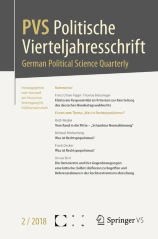Zusammenfassung
Why do we value diversity, and which kind of diversity do we value? A prominent attempt to answer both questions centres on epistemic diversity and tries to show that cognitively more diverse groups are better at solving problems than less diverse groups. In a paper that has excited a small group of political theorists working on epistemic democracy, Lu Hong and Scott E. Page (2004) have argued that diverse groups of problem-solvers outperform less diverse groups of problem-solvers even if the latter are more skilled: “diversity trumps ability” (Hong/Page 2004: 16385).
Unsurprisingly, the model and the implications some political theorists have drawn from it are highly contested. Charles Girard, Lisa Herzog and Kai Spiekermann all make excellent, nuanced contributions to this debate, highlighting various strengths, limits and pitfall. My humble suggestion will be to argue what political theorists should not do: They should not ignore the much longer discussions of epistemic diversity in other fields, they should not discuss epistemic diversity in abstraction from social and historical contexts, and they should not reify and reduce epistemic diversity to identitarian conceptions of “viewpoint diversity”. Perhaps it is apt to characterise my position as a negativist appraisal of diversity: its epistemic advantages become clear when looking at the many social practices that lack diversity.
